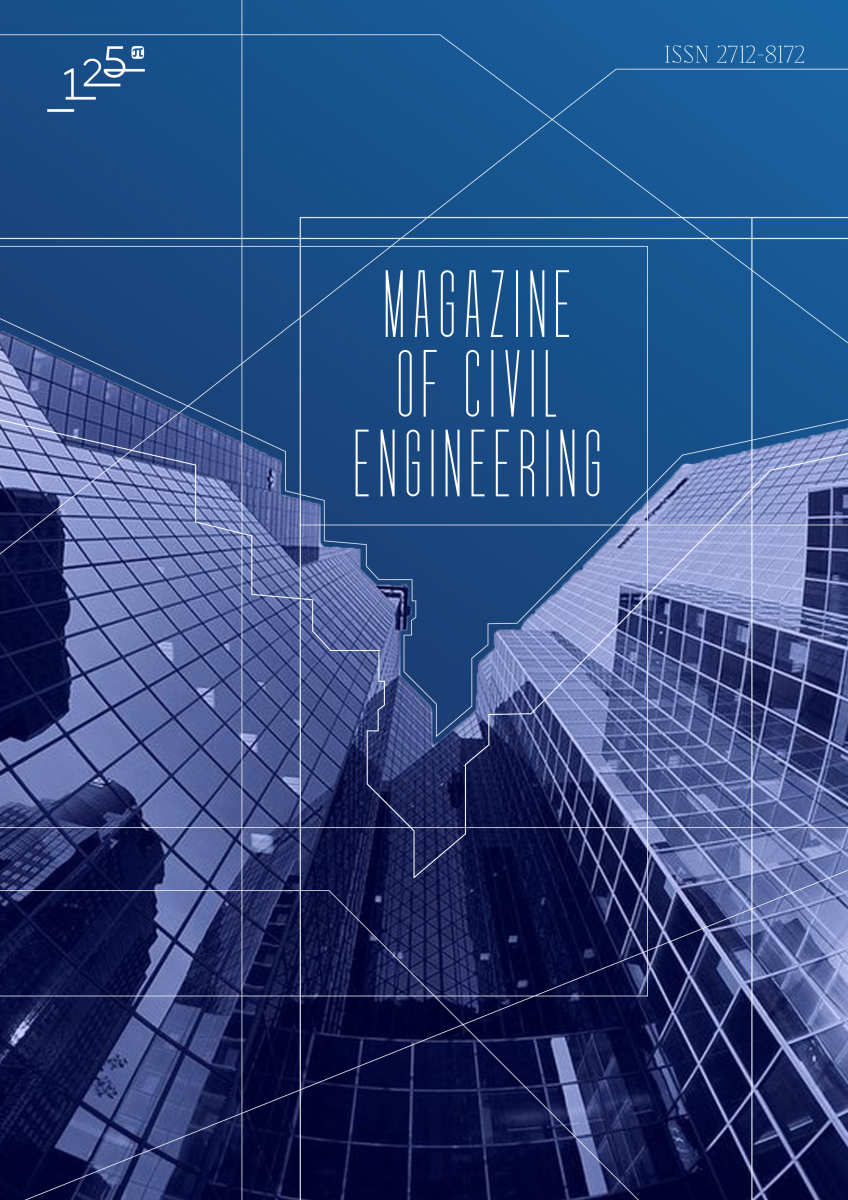Stress-strain conditions of steel rod structures nodes
To obtain qualitative and quantitative indicators of changes in the stress-strain state of the nodes of steel bar structures, we identified four characteristic types of nodes. On the basis of modeling in the "Lira-CAD" software package, we analyzed the stress-strain state of four types of nodes for steel trusses with a symmetric and asymmetric design solution. For the research, a calculation of volumetric models of nodes according to the fourth strength theory was performed. At the current moment, the choice of the required thickness of the truss gusset is performed according to the value of the maximum force in the rods. During the nodes modeling it was found that the safety factors depending on the node type for the symmetrical design solution are more than 40 %. The obtained data allow us to reduce the thickness of the gusset taking into account design constraints. It was found that the safety factors depending on the node type for the asymmetric design solution are 7–90 %. The simulation results substantiated the possibility of reducing the gusset thickness for node type 3, and for node types 1, 2 and 4, they showed the necessity of increasing the thickness taking into account design constraints. We derived the refined dependences between the gusset thickness and the maximum force in the attached rods for each structural type of nodes. Based on results of the analysis, we developed recommendations for calculating the most typical types of nodes and presented them in the form of tables and dependencies. For a constructive solution of fastening of gusset braces at an acute angle, we analyzed the influence of the eccentricity value on the stress in gussets. We determined that the main parameter influencing to the stress-strain state of the gusset is the displacement of attached element relative to the axis of the elements fastening. We derived dependences and made graphs of the displacement influence on stresses for different values of gusset thickness.


